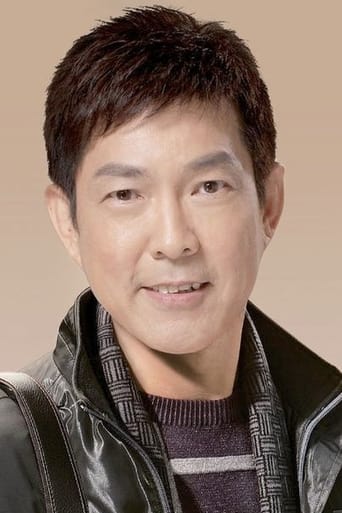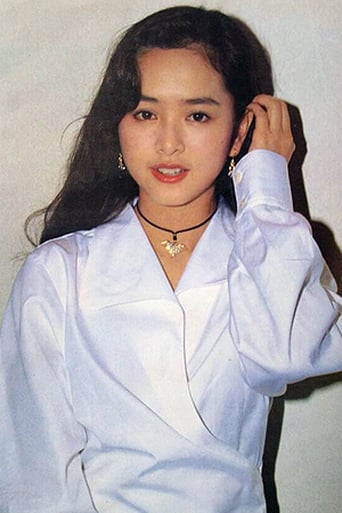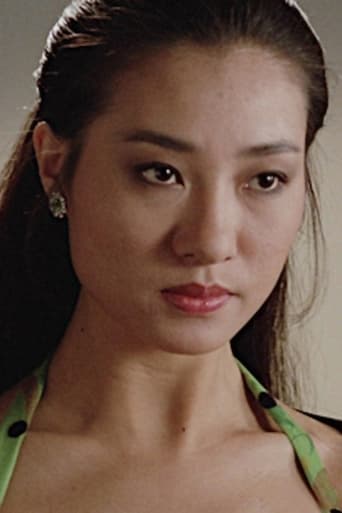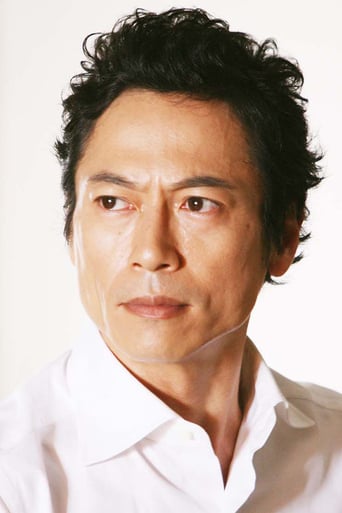DICK STEEL
This was amongst the reasons why growing up in the 80s was cool, with Hong Kong cinema at its heydays and with just about every genre that's covered. And for a kid growing up during the era, Peacock King, in my memory, was one hell of a special effects extravaganza and showing off, at the time, what the East could do with special effects that the West have already accomplished, with fantasy monsters coming to life with stop motion rubber suits and the likes, similar to films such as Ghostbusters or Clash of the Titans, which if viewed today looks dated, but still contains a lot of charm.Alas, The Peacock King somehow didn't withstand the test of time. A kid would have found the premise very interesting, dealing with hell's gates and a hell virgin who held the key to the destruction of mankind once she heralds the return of the hell king, and it is up to two monks to stop every conceivable devil in his or her tracks. Conveniently, given that this is a Hong Kong-Japan co-production, the location of the hell's gates happen to be in Tokyo, Hong Kong, and in Tibet, where the monks Peacock (Yuen Biao) and Lucky Fruit (Migami Hiroshi) meet by chance when they're sent by their masters Ku Fong (Eddy Ko) and Ji Ku (Ken Ogata) respectively, to stop hell virgin Ashura (Gloria Yip in her debut) chaperoned by the evil witch Raga (Pauline Wong Siu Fung) to fulfill the former's destiny.However the storyline if viewed today, as an adult, consists of plenty of unnecessary sub plots and loopholes, and characters who don't really serve a purpose. For instance, there's the retail store's Okada (Yasuda Narumi) who's in this film just to balance the female quotient, being more than a bother since she hangs around the monks and in my opinion seems more like a liability with her non-powers as well as potential to trip things up. Moreover, her character also presents an unlikely romance with Lucky Fruit, so there isn't really a point to get her over to Hong Kong or Tibet once the Tokyo story arc is over.Then there's the waste of Gordon Liu's character Kubira, a warrior sent on an assassination attempt on our heroes, if only to allow for a backstory to tell of how the two lead characters are linked together in a twist of fate, and to provide for more credible fight sequences using bona fide kung fu, balancing out the over-reliance of special effects here. But Kubira's introduction gives additional time to Ken Ogata as the latter comes to the aid of his disciple during the final act, in addition to brining a lot more unnamed characters into the fray for that increase in body count.Director Lam Ngai Kai may be questioned for his choice of inserting random English language music to make this truly a one of a kind international production, but really the soundtrack stuck out like a sore thumb. Some filler scenes could also be done without, since they pose a lot more unnecessary questions - an airplane shot means the heroes travel by air, but how would they pass customs with their weapons, and the bringing of a Hell Virgin as a passenger? Hmm. But I suppose such is the charm when watching it as a kid as you rarely question these points and take things at face value, in it for the many special effects shots that pepper the movie.And in all honesty, for that time, they were well done, with grotesque looking monsters given some air time to up the eerie quotient. Some are done for the sake of, such as Peacock's exorcising of a few critters on the streets of Tokyo, while others look really rubberized, such as the dinosaurs in the shopping centre arcade. Raga's transformation was perhaps the highlight, showing off the creativity of the filmmakers in making something really functionally ugly, while the design of the Hell King was kept quite simple - that of a giant, bald man.One would have expected the role of Peacock to provide a lot more visibility to Yuen Biao, but sadly this wasn't really the case. He shares screen time with Lucky Fruit's Migami Hiroshi to contrast the opposites of both men - one the relaxed joker while the other a little bit more uptight, to have to learn to cooperate with each other given an adversarial introduction, in order to combine their strengths to save mankind. Gloria Yip as the Hell Virgin also didn't have much to do here, other than to act cute when away from Raga and happen to be frolicking the Ocean Park theme park with Peacock, for him to be convinced that she's nothing but an innocent child who's ruined by Fate to do the inevitable. There's not much of a character development in any character here other than the perfunctory scenes, given that much of the 80 minutes got dedicated to battles, mostly CG enhanced rather than to showcase real moves, which is a pity.Revisiting Peacock King somehow marred that wonderful film that I had in my mind no doubt created by being awed as a kid. Watching it today made me realize it's quite a weak film with only dated special effects to boast about. and I wonder since some older classics have been remade by Hong Kong filmmakers, whether anyone had thought about this manga inspired movie to be given an update as well. One can only hope.
ebiros2
This was one movie where acting of Hong Kong actors and Japanese actors interaction went extremely smooth. Usually in HK movie made in Japan have HK actor doing lion share of the dialog, and Japanese actors are relegated to small roles where they speak only few simple Japanese words. Not this movie. It's amazing that the actors just went playing their role as if it was done in their native language, and somehow it all looked natural.When you look at this movie its really difficult to tell who's the Japanese actor and who's from Hong Kong. Genetically, all Asians must be pretty close to one another.In Cantonese version Yuen Bao is the main character, but in the Japanese version Hiroshi Mikami is the main character. They wrote the script very cleverly that the two characters are interchangeable.Based on a comic by Makoto Ogino, Peacock King, or Kujyaku Oo is a good translation of the original comic into a movie. The original comic's ordinary person, or situation suddenly morphing into a demonic entity is also translated well into this movie.I liked Narumi Yasuda's acting as a department worker suddenly finding herself embroiled in the world of Vajirayana Buddhism vs demons of the underworld.World looked really peaceful and healthy in Japan around the time this movie was made. It truly was the best of times.Really well made movie of its kind. It's a treat to watch.
gridoon
Yuen Biao is a great, underrated martial artist, and personally I prefer to see him fighting against human opponents with his body (which he does ONLY ONCE, after a full hour, in this film) rather than weird stop-motion animated creatures with supernatural fireballs (which he does a lot more often here). The ambitious, large-scale special effects and sets of "The Peacock King" are worth seeing (even if they show their age sometimes, and they're not as good as those of the same director's "Seventh Curse"), and when the Hell King himself appears at the end, he looks pretty impressive. But the story, which has Biao as a sort of adventurer-exorcist-demon hunter who tries to prevent the end of the world with the help of his equally skilled brother, is just incomprehensible claptrap. (**)
semprini-2
Despite reasonably pitiful special effects, this was still quite an entertaining martial arts movie. Quite a good amount of fighting, acceptable acting and an unremarkable plot, this was an acceptable way to pass the time.If you like Yuen Biao or Hong Kong martial arts movies, you will probably get enough entertainment out of this without being blown away. The first time I saw this I think I must have been pretty tired as I fell asleep. The second time it seemsd a lot better...!!I think it deserves a 6 out of 10 which is pretty good going.





